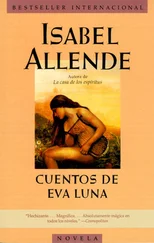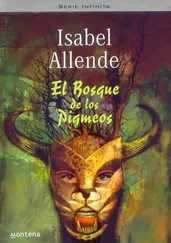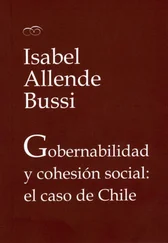Isabel Allende - Zorro
Здесь есть возможность читать онлайн «Isabel Allende - Zorro» весь текст электронной книги совершенно бесплатно (целиком полную версию без сокращений). В некоторых случаях можно слушать аудио, скачать через торрент в формате fb2 и присутствует краткое содержание. Год выпуска: 2005, ISBN: 2005, Издательство: Harper Perennial, Жанр: Исторические приключения, на английском языке. Описание произведения, (предисловие) а так же отзывы посетителей доступны на портале библиотеки ЛибКат.
- Название:Zorro
- Автор:
- Издательство:Harper Perennial
- Жанр:
- Год:2005
- ISBN:9780060779009
- Рейтинг книги:3 / 5. Голосов: 1
-
Избранное:Добавить в избранное
- Отзывы:
-
Ваша оценка:
- 60
- 1
- 2
- 3
- 4
- 5
Zorro: краткое содержание, описание и аннотация
Предлагаем к чтению аннотацию, описание, краткое содержание или предисловие (зависит от того, что написал сам автор книги «Zorro»). Если вы не нашли необходимую информацию о книге — напишите в комментариях, мы постараемся отыскать её.
Zorro — читать онлайн бесплатно полную книгу (весь текст) целиком
Ниже представлен текст книги, разбитый по страницам. Система сохранения места последней прочитанной страницы, позволяет с удобством читать онлайн бесплатно книгу «Zorro», без необходимости каждый раз заново искать на чём Вы остановились. Поставьте закладку, и сможете в любой момент перейти на страницу, на которой закончили чтение.
Интервал:
Закладка:
Three years later, Pedro Fages kept the promise he had made to his wife and resigned his post as governor of Alta California so that he could return to civilization. At heart, he was happy with that decision because exercising power had always seemed a thankless task. The couple loaded up mule teams and ox carts with their trunks, gathered together their small court, and began the march to Mexico City, where Eulalia de Callis had furnished a baroque palace with all the grandeur befitting her rank. Of necessity, they stopped at every town and mission along the road to rest and to be feted by the colonists.
Despite their mercurial natures, the Fages were loved, because he had governed with justice and she had a reputation for being wildly generous. In Pueblo de los Angeles, the Spanish colonists pooled their resources with those of the nearby San Gabriel mission, the most prosperous in the province and only a few leagues from the town, and gave the travelers a reception worthy of their station. The town, built in the style of colonial Spanish cities, was a large square with a central plaza, well planned for growth and prosperity, although at that moment it had only four principal streets and a hundred or so houses of cane and mud. There was also a tavern its back room served as a general store a church, a jail, and a half dozen adobe, stone, and tile-roofed buildings where the authorities lived. Despite the small number of inhabitants and the scarcity of ready cash, the colonists were famous for their hospitality and for the continuous cycle of parties they offered throughout the year. Guitars, trumpets, violins, and pianos enlivened the nights on Saturdays, and every Sunday they gathered to dance the fandango. The visit of the governor and his wife was the best excuse to celebrate they’d had since the town was founded.
They placed arches covered with flags and paper flowers around the plaza, they set long tables with white cloths, and everyone capable of playing an instrument was recruited for the soiree, including a couple of prisoners who were freed from the stocks when it was learned that they could strum a guitar. Padre Mendoza brought his neophytes, several casks of his best wine, two cows, and an assortment of pigs, hens, and ducks to be sacrificed for the occasion. The preparations took several months, and during that time people talked about nothing else. The women stitched gowns for the gala, the men polished their silver buttons and buckles, the musicians practiced the dance music in vogue in Mexico City, the cooks worked like slaves to prepare the most sumptuous banquet ever seen in their town.
Captain Alejandro de la Vega had been put in charge of public order and safety during the visitors’ stay. From the moment he learned they would be coming, the image of Regina tormented him day and night. He wondered what had become of her during those three centuries of separation, how she had survived in the dark Presidio in Monterey, and whether she would remember him. His doubts evaporated the night of the fiesta, when amid the light of the torches and sound of the orchestra he saw a dazzling girl dressed and coiffed in the European mode, and instantly recognized those burnt-sugar-colored eyes. She picked him out of the crowd and without missing a beat walked toward him, stopping before him with the most serious expression in the world. The captain, his heart within an ace of shattering, intended to hold out his hand to invite her to dance. Instead, out gushed a proposal of marriage. It was not an impromptu impulse; he had been thinking about her for three years and had reached the conclusion that a stain on his impeccable lineage would be far better than living without her. He realized that he would never be able to present her to his family or to society in Spain, but he didn’t care. For her, he was ready to put down roots in California and never leave the New World. Regina accepted him; she had loved him secretly since those days when he nursed her back to life in Padre Mendoza’s wine cellar.
And that is how the governor’s festive visit in Pueblo de los Angeles came to be crowned with the wedding of the captain and the mysterious lady-in-waiting to Eulalia de Callis. Padre Mendoza, who had let his hair grow to his shoulders to mask the horrible scar left by his severed ear, performed the ceremony, even though he tried up to the last moment to talk the captain out of marrying. He was not overly concerned that the bride was a mestiza many Spaniards married Indian girls it was the suspicion that beneath Regina’s perfect European lady’s looks lurked Toypurnia, Daughter-of-Wolf. Pedro Fages personally escorted the bride to the altar; he was convinced that she had saved his marriage, for in Eulalia’s eagerness to educate the girl, her nature had sweetened slightly, and she had stopped tormenting her husband with her fits. Considering that he also owed his wife’s life to Alejandro de la Vega, if the gossip was to be believed, he decided that this was a good occasion to be generous. With a flourish of his pen he signed over the title for a ranch and several thousand head of cattle to the brand-new couple, since it was in his power to distribute land among the colonists. He drew the perimeters on a map, following the caprice of the pencil, and later, when the real borders of the ranch were verified, it turned out that they enclosed a vast territory of pasture lands hills, forests, rivers, and beach. It took several days to ride across the property on horseback: it was the largest and best-located spread in the region. Without having solicited it, Alejandro de la Vega found himself a wealthy man. Some weeks later, when people began to call him Don Alejandro, he resigned from the king’s army in order to devote himself entirely to prospering in this new land. One year later, he was elected alcalde of Pueblo de los Angeles.
De la Vega built a large, solid, and unpretentious home of adobe, with a red tile roof and floors of rough clay tiles. He decorated his house with heavy furniture built by a Galician carpenter in the town, with no consideration for aesthetics, only for durability. The location of the house was enviable: close to the beach and a short distance from both Pueblo de los Angeles and the mission of San Gabriel. The large Mexican hacienda-style house stood on a hill, and its orientation offered a panoramic view of coast and sea. Nearby were the sinister natural tar deposits where no one came willingly because the souls of the dead trapped in the pitch wandered there. Between the beach and the hacienda lay a labyrinth of caves, a sacred place to the Indians, as feared as the tar pits. Indians did not go there, out of respect for their ancestors, nor did the Spanish because of frequent landslides, and because it was easy to get lost in that maze.
Alejandro de la Vega installed several Indian families and mestizo vaqueros on his property, branded his herd, and began to raise purebred horses, using breeding stock he had imported from Mexico. In his spare time he set up a small soap factory and devoted himself to experiments in the kitchen, trying to find the perfect formula for smoking meat seasoned with chili peppers. He was trying to produce a dry but savory meat that would last months without going bad. This experiment consumed all his time and filled the sky with volcanic smoke the wind carried far out to sea, altering the behavior of the whales. He calculated that if he found the precise balance between flavor and resistance to spoiling, he could sell the product to the army and to the ships. He felt that it was a tremendous waste to strip the hide and fat off the cattle and lose mountains of good meat. While her husband multiplied the number of cattle, sheep, and horses on the ranch, directed the politics of the town, and did business with the merchant ships, Regina busied herself by looking after the Indians on the hacienda. She had no interest at all in the social life of the colony, and with Olympian indifference ignored the gossip circulating about her. Behind her back, everyone commented on her unsociable and arrogant nature, her more than doubtful origins, her escapades on horseback, her naked bathing in the sea. However, since she had arrived as a protegee of the Fages, the minuscule social set of Pueblo de los Angeles was at first pre pared to take her to their collective bosom without asking questions, but Regina herself bowed out. Soon the dresses that had been made for her under Eulalia de Callis’s guidance hung abandoned in the armoires, devoured by moths. She felt more comfortable going barefoot and wearing the rough clothing of the neophytes. And so her day went by. In the evening, when she anticipated that Alejandro would soon be home, she bathed, coiled her hair into a casual bun, and put on a simple dress that gave her the innocent appearance of a novitiate. Her husband, blind with love and occupied in his business affairs, shrugged off the betraying signs of Regina’s state of mind. He wanted to see her happy and never asked her if she was, for fear that she would tell him the truth. He attributed his wife’s strange behavior to inexperience in life as a newlywed, and to her closed nature. He preferred not to think that the well-behaved lady sitting with him at the dinner table was the same ferociously painted warrior who had attacked the San Gabriel mission several years before. He believed that motherhood would cure his wife of her last bad habits, but despite the long, frequent tumbles in the four-pillared bed they shared, the wished-for child did not arrive until 1795.
Читать дальшеИнтервал:
Закладка:
Похожие книги на «Zorro»
Представляем Вашему вниманию похожие книги на «Zorro» списком для выбора. Мы отобрали схожую по названию и смыслу литературу в надежде предоставить читателям больше вариантов отыскать новые, интересные, ещё непрочитанные произведения.
Обсуждение, отзывы о книге «Zorro» и просто собственные мнения читателей. Оставьте ваши комментарии, напишите, что Вы думаете о произведении, его смысле или главных героях. Укажите что конкретно понравилось, а что нет, и почему Вы так считаете.











